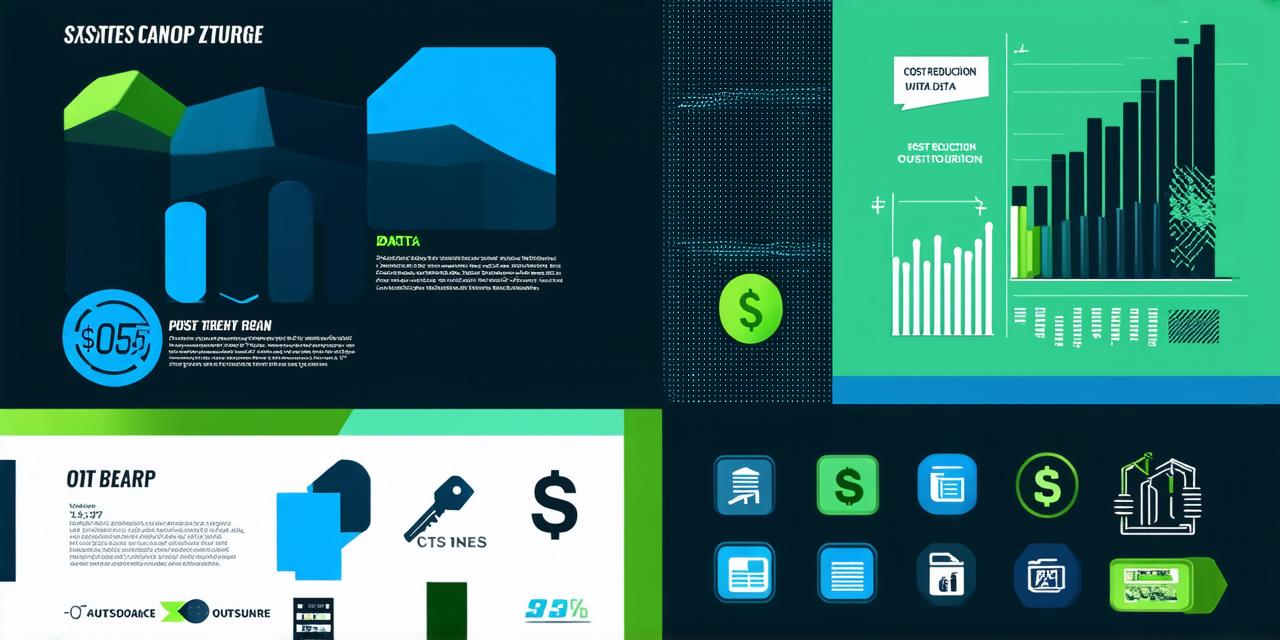If you’re looking for ways to cut costs and increase profits, outsourcing may be the solution. In this article, we will explore how outsourcing can help you reduce costs in a variety of areas, including:
- Staffing Costs
- Marketing and Advertising Costs
- IT Services Costs
- Legal and Compliance Costs

Staffing Costs
One of the biggest cost savings that many businesses achieve through outsourcing is by reducing staffing costs. Outsourcing allows you to tap into a pool of skilled workers without having to worry about hiring, training, or retaining them. This can be especially beneficial for small and medium-sized businesses (SMBs) that may not have the resources to hire full-time employees.
For example, suppose you own an SMB that produces customized products for customers. You could outsource the manufacturing process to a third-party manufacturer, which would allow you to focus on other aspects of your business, such as marketing and customer service. This could save you money on salaries, benefits, and training expenses, while still allowing you to produce high-quality products that meet your customers’ needs.
Marketing and Advertising Costs
Another area where outsourcing can help you reduce costs is in marketing and advertising. Many businesses struggle with creating effective marketing campaigns, but outsourcing this process to a professional marketing agency can be a cost-effective solution.
For example, suppose you own an online retail business that sells niche products. You could outsource your marketing efforts to a specialized agency that has expertise in promoting niche products to specific target audiences. This would allow you to focus on other aspects of your business, such as product development and customer service, while still benefiting from the marketing agency’s knowledge and experience.
IT Services Costs
In today’s digital age, IT services are becoming increasingly important for businesses of all sizes. However, hiring a full-time IT team can be expensive, especially for SMBs. Outsourcing your IT needs to a third-party provider can help you save money while still ensuring that your business has access to the technology and expertise it needs to thrive.
For example, suppose you own an e-commerce business that needs to update its website regularly. You could outsource the web development process to a specialized agency, which would allow you to focus on other aspects of your business while still benefiting from the agency’s technical expertise and resources.
Legal and Compliance Costs
Finally, outsourcing can also help you reduce costs in legal and compliance areas. Legal compliance can be a complex and time-consuming process, especially for businesses that operate in highly regulated industries. Outsourcing this process to a legal expert or compliance specialist can help you ensure that your business is meeting all of its legal obligations while freeing up your staff to focus on other tasks.
For example, suppose you own a healthcare business that needs to comply with various regulations related to patient data privacy and security. You could outsource the compliance process to a specialized agency that has expertise in these areas, which would allow you to focus on other aspects of your business while still ensuring that your company is meeting all legal requirements.
Real-Life Examples
To help illustrate how outsourcing can help businesses reduce costs and increase profits, let’s look at some real-life examples:
- A small SMB that produces customized products for customers could outsource the manufacturing process to a third-party manufacturer, which would allow them to focus on other aspects of their business without having to worry about hiring, training, or retaining employees. This could save them money on salaries, benefits, and training expenses while still allowing them to produce high-quality products that meet their customers’ needs.
- An online retail business that sells niche products could outsource its marketing efforts to a specialized agency that has expertise in promoting niche products to specific target audiences. This would allow the business to focus on other aspects of their operation, such as product development and customer service, while still benefiting from the marketing agency’s knowledge and experience.
